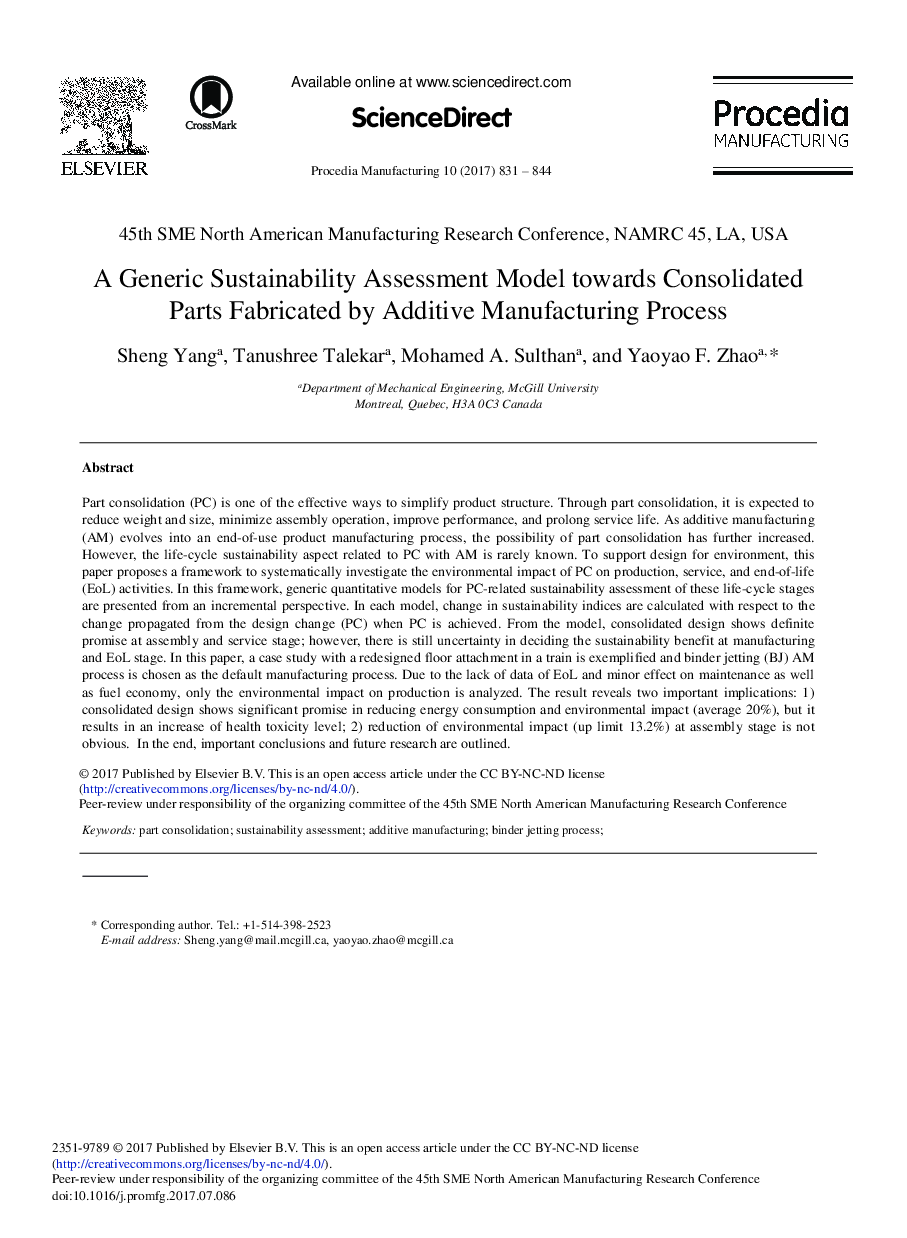| کد مقاله | کد نشریه | سال انتشار | مقاله انگلیسی | نسخه تمام متن |
|---|---|---|---|---|
| 5128827 | 1489602 | 2017 | 14 صفحه PDF | دانلود رایگان |

Part consolidation (PC) is one of the effective ways to simplify product structure. Through part consolidation, it is expected to reduce weight and size, minimize assembly operation, improve performance, and prolong service life. As additive manufacturing (AM) evolves into an end-of-use product manufacturing process, the possibility of part consolidation has further increased. However, the life-cycle sustainability aspect related to PC with AM is rarely known. To support design for environment, this paper proposes a framework to systematically investigate the environmental impact of PC on production, service, and end-of-life (EoL) activities. In this framework, generic quantitative models for PC-related sustainability assessment of these life-cycle stages are presented from an incremental perspective. In each model, change in sustainability indices are calculated with respect to the change propagated from the design change (PC) when PC is achieved. From the model, consolidated design shows definite promise at assembly and service stage; however, there is still uncertainty in deciding the sustainability benefit at manufacturing and EoL stage. In this paper, a case study with a redesigned floor attachment in a train is exemplified and binder jetting (BJ) AM process is chosen as the default manufacturing process. Due to the lack of data of EoL and minor effect on maintenance as well as fuel economy, only the environmental impact on production is analyzed. The result reveals two important implications: 1) consolidated design shows significant promise in reducing energy consumption and environmental impact (average 20%), but it results in an increase of health toxicity level; 2) reduction of environmental impact (up limit 13.2%) at assembly stage is not obvious. In the end, important conclusions and future research are outlined.
Journal: Procedia Manufacturing - Volume 10, 2017, Pages 831-844